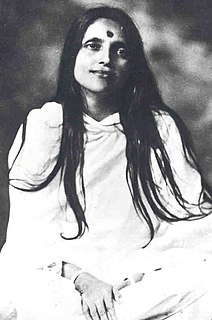A Quote by Robert Lowell
I saw the spiders marching through the air, Swimming from tree to tree that mildewed day In latter August when the hay Came creaking to the barn.
Related Quotes
I saw the spiders marching through the air, Swimming from tree to tree that mildewed day In latter August when the hay Came creaking to the barn. But where The wind is westerly, Where gnarled November makes the spiders fly Into the apparitions of the sky, They purpose nothing but their ease and die Urgently beating east to sunrise and the sea.
You took a walk on a Sunday afternoon and came to a nice neighborhood, very refined. You saw a small one of these trees through the iron gate leading to someone's yard and you knew that soon that section of Brooklyn would get to be a tenement district. The tree knew. It came there first. Afterwards, poor foreigners seeped in and the quiet old brownstone houses were hacked up into flats, feather beds were pushed out on the window sills to air and the Tree of Heaven flourished. That was the kind of tree it was. It liked poor people.
Once upon a time there was a crooked tree and a straight tree. And they grew next to each other. And every day the straight tree would look at the crooked tree and he would say, "You're crooked. You've always been crooked and you'll continue to be crooked. But look at me! Look at me!" said the straight tree. He said, "I'm tall and I'm straight." And then one day the lumberjacks came into the forest and looked around, and the manager in charge said, "Cut all the straight trees." And that crooked tree is still there to this day, growing strong and growing strange.
Do you know that even when you look at a tree and say, `That is an oak tree', or `that is a banyan tree', the naming of the tree, which is botanical knowledge, has so conditioned your mind that the word comes between you and actually seeing the tree? To come in contact with the tree you have to put your hand on it and the word will not help you to touch it.
One time I saw a tiny Joshua tree sapling growing not too far from the old tree. I wanted to dig it up and replant it near our house. I told Mom that I would protect it from the wind and water it every day so that it could grow nice and tall and straight. Mom frowned at me. "You'd be destroying what makes it special," she said. "It's the Joshua tree's struggle that gives it its beauty.
I think that I shall never see A poem lovely as a tree. A tree whose hungry mouth is pressed Against the earth's sweet flowing breast; A tree that looks at God all day And lifts her leafy arms to pray; A tree that may in summer wear A nest of robins in her hair; Upon whose bosom snow has lain; Who intimately lives with rain. Poems are made by fools like me, But only God can make a tree.
But it can also happen, if will and grace are joined, that as I contemplate the tree I am drawn into a relation, and the tree ceases to be an It. . . . Does the tree then have consciousness, similar to our own? I have no experience of that. But thinking that you have brought this off in your own case, must you again divide the indivisible? What I encounter is neither the soul of a tree nor a dryad, but the tree itself.
Sometimes I come across a tree which seems like Buddha or Jesus: loving, compassionate, still, unambitious, enlightened, in eternal meditation, giving pleasure to a pilgrim, shade to a cow, berries to a bird, beauty to its surroundings, health to its neighbors, branches for the fire, leaves for the soil, asking nothing in return, in total harmony with the wind and the rain. How much can I learn from a tree? The tree is my church, the tree is my temple, the tree is my mantra, the tree is my poem and my prayer.
Enquire: 'Who am I?' and you will find the answer. Look at a tree: from one seed arises a huge tree; from it comes numerous seeds, each one of which in its turn grows into a tree. No two fruits are alike. Yet it is one life that throbs in every particle of the tree. So, it is the same Atman everywhere.




































